
Apia: The Heartbeat of Samoa's Natural Beauty and Warm Culture
Nestled on the central north coast of Upolu Island, Apia is the vibrant capital city of Samoa. This picturesque city is a perfect blend of traditional Samoan culture and modern amenities. As soon as you step foot in Apia, you are greeted with the warm hospitality of the locals and the lush green landscapes that surround the city. The town center is bustling with life, featuring colorful markets, charming cafes, and historic landmarks. One of the main highlights of Apia is the Samoa Cultural Village, where you can immerse yourself in Samoan traditions and crafts. Witness the intricate process of making tapa cloth, enjoy traditional dance performances, and learn about the island's history. Nearby, the iconic Immaculate Conception of Mary Cathedral stands as a testament to the island's rich religious heritage. For nature lovers, Apia offers easy access to some of Samoa's most stunning natural attractions. A short drive will bring you to the famous To Sua Ocean Trench, a breathtaking swimming hole surrounded by lush gardens. The Palolo Deep Marine Reserve is another must-visit spot for snorkeling enthusiasts, offering a glimpse into the vibrant underwater world of coral reefs and tropical fish. Don't miss a visit to the Robert Louis Stevenson Museum, the former home of the famous author, which is now a beautifully preserved museum set in expansive gardens. Apia's culinary scene is another delight for tourists. The city boasts a variety of dining options, from street food stalls offering local delicacies like taro and palusami, to upscale restaurants serving fresh seafood and international cuisine. The night market is a great place to sample traditional Samoan dishes while enjoying live music and entertainment.
Local tips in Apia
- Visit the markets early in the morning for the freshest produce and best local crafts.
- Dress modestly when visiting villages and cultural sites to show respect for local customs.
- Carry cash, as not all places in Apia accept credit cards.
- Rent a car to explore the island at your own pace, as public transport options are limited.
- Stay hydrated and use sun protection, as the tropical climate can be quite intense.
Apia: The Heartbeat of Samoa's Natural Beauty and Warm Culture
Nestled on the central north coast of Upolu Island, Apia is the vibrant capital city of Samoa. This picturesque city is a perfect blend of traditional Samoan culture and modern amenities. As soon as you step foot in Apia, you are greeted with the warm hospitality of the locals and the lush green landscapes that surround the city. The town center is bustling with life, featuring colorful markets, charming cafes, and historic landmarks. One of the main highlights of Apia is the Samoa Cultural Village, where you can immerse yourself in Samoan traditions and crafts. Witness the intricate process of making tapa cloth, enjoy traditional dance performances, and learn about the island's history. Nearby, the iconic Immaculate Conception of Mary Cathedral stands as a testament to the island's rich religious heritage. For nature lovers, Apia offers easy access to some of Samoa's most stunning natural attractions. A short drive will bring you to the famous To Sua Ocean Trench, a breathtaking swimming hole surrounded by lush gardens. The Palolo Deep Marine Reserve is another must-visit spot for snorkeling enthusiasts, offering a glimpse into the vibrant underwater world of coral reefs and tropical fish. Don't miss a visit to the Robert Louis Stevenson Museum, the former home of the famous author, which is now a beautifully preserved museum set in expansive gardens. Apia's culinary scene is another delight for tourists. The city boasts a variety of dining options, from street food stalls offering local delicacies like taro and palusami, to upscale restaurants serving fresh seafood and international cuisine. The night market is a great place to sample traditional Samoan dishes while enjoying live music and entertainment.
When is the best time to go to Apia?
Iconic landmarks you can’t miss
To-Sua Ocean Trench
Explore the stunning To-Sua Ocean Trench, a breathtaking natural swimming hole in Samoa surrounded by lush landscapes.
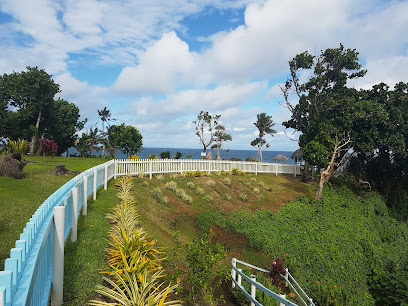
Tanoa Tusitala Hotel
Experience the perfect blend of comfort and tradition at Tanoa Tusitala Hotel, your gateway to the beauty of Samoa.
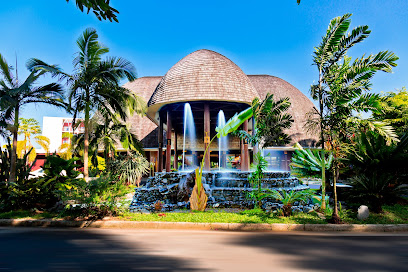
Piula Cave Pool
Explore the serene beauty of Piula Cave Pool, a natural wonder in Faleapuna, Samoa, perfect for swimming and relaxation amidst stunning landscapes.
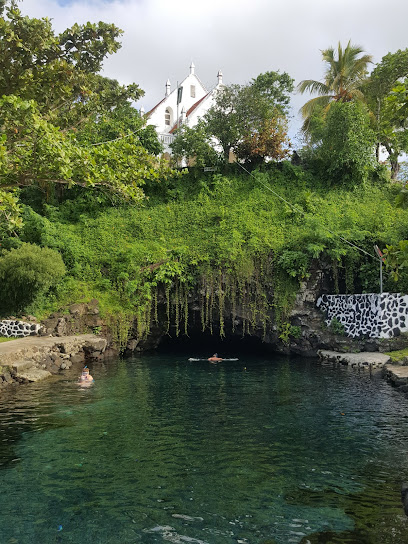
Sheraton Samoa Aggie Grey's Hotel & Bungalows
Discover the perfect blend of luxury and cultural experiences at Sheraton Samoa Aggie Grey's Hotel & Bungalows, your oasis in Apia, Samoa.
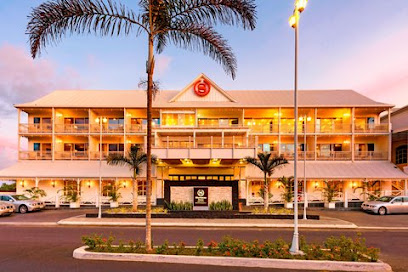
Palolo Deep Marine Reserve
Explore the vibrant underwater world at Palolo Deep Marine Reserve, a snorkeling paradise with stunning coral reefs and diverse marine life.
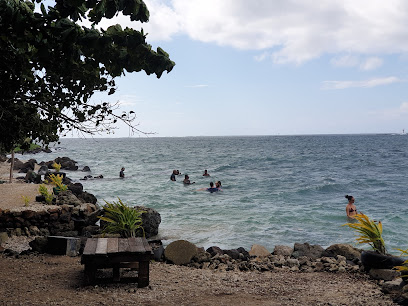
Samoa Cultural Village
Experience the vibrant culture and traditions of Samoa at the Cultural Village, where heritage comes alive through interactive exhibits and performances.
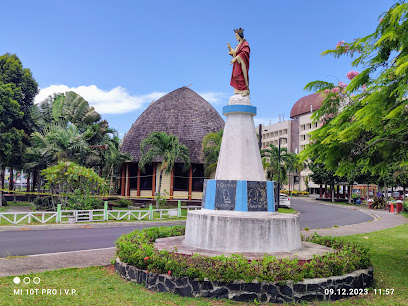
Robert Louis Stevenson Museum
Discover the legacy of Robert Louis Stevenson in the charming museum that celebrates his life and literary genius amidst the beauty of Samoa.
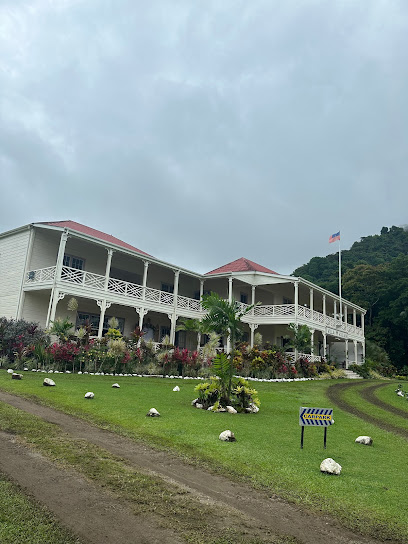
Papaseea Sliding Rocks
Discover the thrilling Papaseea Sliding Rocks in Samoa—a natural water slide paradise surrounded by lush tropical beauty and perfect for adventure lovers.
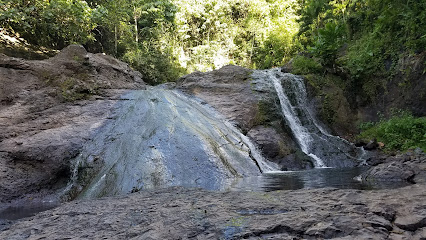
Immaculate Conception Cathedral
Discover the Immaculate Conception Cathedral in Apia – a magnificent blend of Samoan culture and breathtaking architecture, perfect for spiritual reflection.
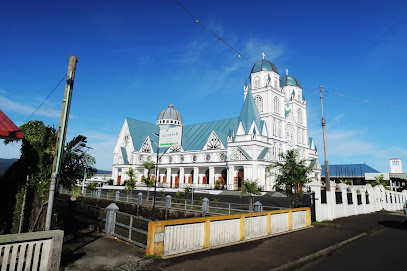
Lava Hotel Apia
Experience the charm of Apia at Lava Hotel, a perfect blend of comfort and local culture in the heart of Samoa's capital.
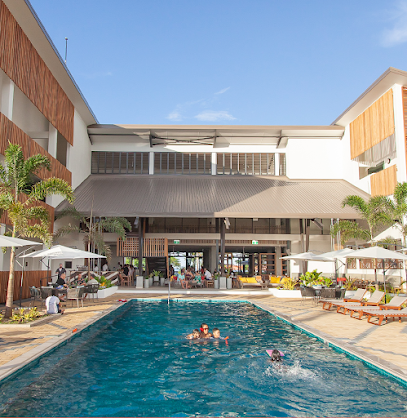
Togitogiga Waterfall
Immerse yourself in the natural beauty of Togitogiga Waterfall, a serene paradise in Samoa perfect for swimming and relaxation amidst lush greenery.
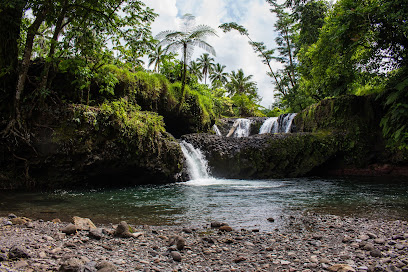
Papapapaitai Falls
Discover the awe-inspiring Papapapaitai Falls, a breathtaking waterfall in Samoa surrounded by lush landscapes and vibrant local culture.
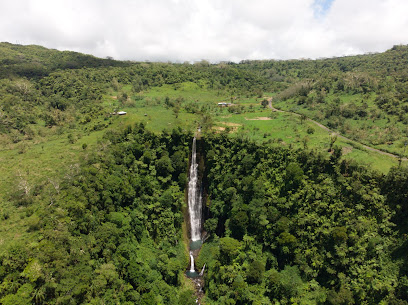
O Le Pupu-Pue National Park
Discover the natural wonders of O Le Pupu-Pue National Park in Samoa, where lush rainforests meet stunning waterfalls in a tropical paradise.
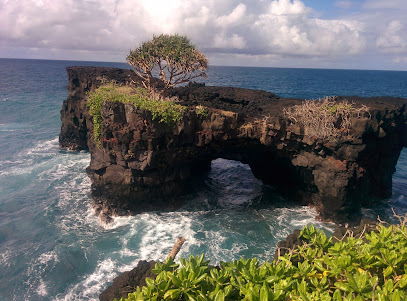
Falefa Falls
Experience the breathtaking beauty of Falefa Falls in Samoa, a natural wonder that captivates travelers with its serene atmosphere and stunning landscapes.
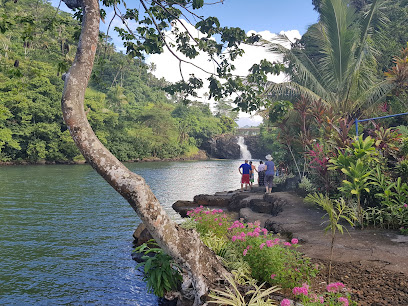
Apia Samoa Temple
Explore the Apia Samoa Temple, a serene sanctuary that showcases the beauty of Samoan culture and spirituality amidst lush landscapes.
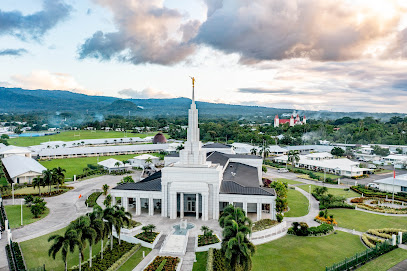
Unmissable attractions to see
To-Sua Ocean Trench
Explore To-Sua Ocean Trench, a stunning natural swimming hole in Samoa, surrounded by lush landscapes and breathtaking views of the Pacific Ocean.
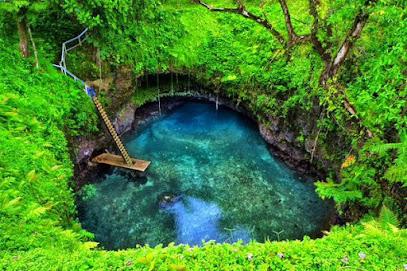
To-Sua Ocean Trench
Experience the breathtaking beauty of To-Sua Ocean Trench, a stunning natural swimming hole surrounded by lush landscapes in Samoa.
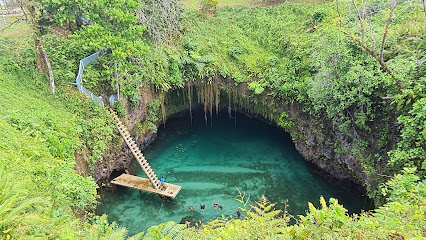
Piula Cave Pool
Explore the enchanting Piula Cave Pool, a stunning natural swimming oasis nestled in the lush landscapes of Faleapuna, Samoa.
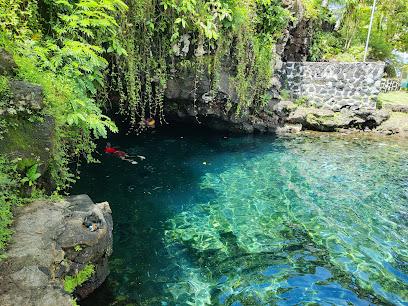
Palolo Deep Marine Reserve
Explore the stunning Palolo Deep Marine Reserve, a vibrant underwater paradise in Apia, Samoa, perfect for snorkeling and diving adventures.
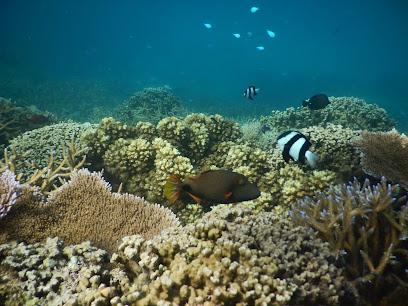
Giant Clam Sanctuary
Explore the enchanting Giant Clam Sanctuary in Savaia, a haven for marine biodiversity and conservation enthusiasts, offering a unique glimpse into the underwater world.
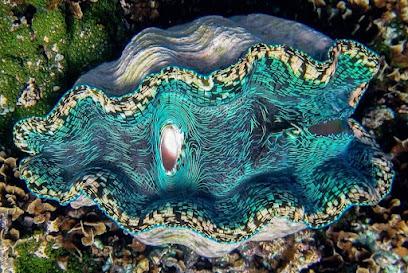
Robert Louis Stevenson Museum
Explore the enchanting Robert Louis Stevenson Museum in Apia, Samoa, and immerse yourself in the literary world of this iconic author amidst stunning landscapes.
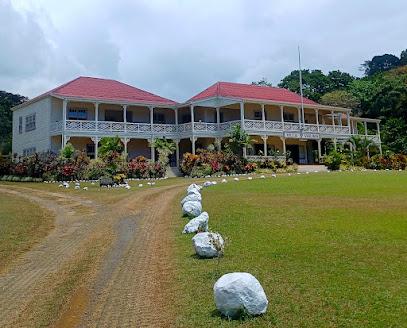
Giant Clam Sanctuary
Explore the Giant Clam Sanctuary in Savaia, where marine conservation meets stunning underwater beauty in a vibrant nature preserve.
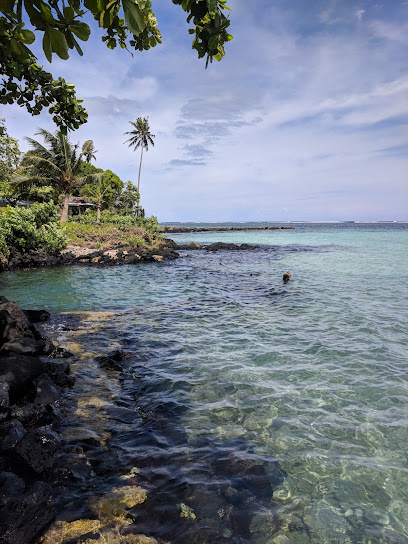
Pacific Jewell Gift Shop & Garden Café
Explore unique Samoan crafts and enjoy a delightful café experience at the Pacific Jewell Gift Shop & Garden Café in Apia.
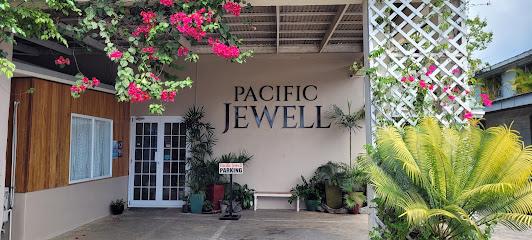
National Park of American Samoa
Explore the breathtaking landscapes and vibrant wildlife of the National Park of American Samoa, a tropical paradise rich in cultural heritage.
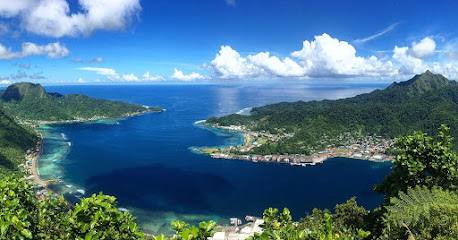
Immaculate Conception Cathedral
Explore the architectural beauty and spiritual significance of the Immaculate Conception Cathedral in Apia, Samoa, a captivating tourist attraction.
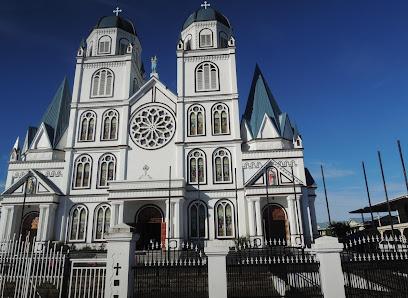
Togitogiga Waterfall
Explore Togitogiga Waterfall, a breathtaking natural gem in Samoa's lush landscapes, perfect for adventure seekers and nature lovers alike.
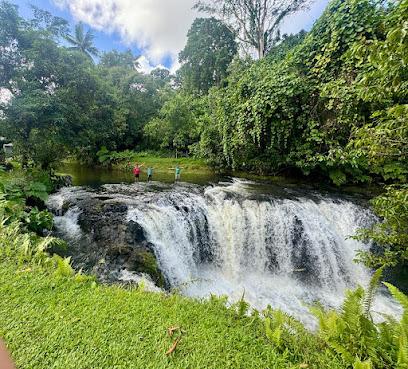
Papapapaitai Falls
Explore the breathtaking Papapapaitai Falls in Samoa, a stunning natural wonder with cascading waters and lush surroundings.
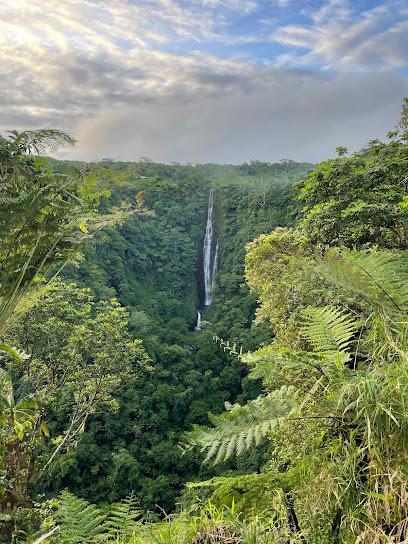
Sopo'aga Falls Viewpoint
Experience the breathtaking beauty of Sopo'aga Falls Viewpoint, a must-see natural wonder along Samoa's Main South Coast Road, perfect for nature lovers and photographers.
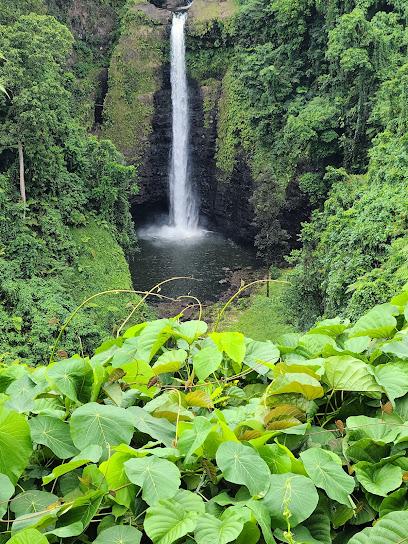
Togitogiga Waterfall
Experience the serene beauty of Togitogiga Waterfall, a stunning natural attraction in Samoa perfect for relaxation and photography.
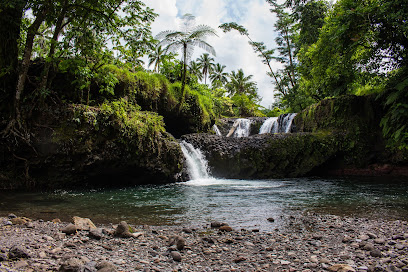
O Le Pupu-Pue National Park
Explore the breathtaking landscapes and rich biodiversity of O Le Pupu-Pue National Park, a true gem of Samoa’s natural heritage.
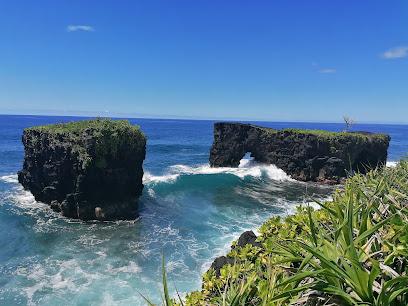
Essential places to dine
Paddles Restaurant
Experience authentic Samoan cuisine at Paddles Restaurant in Apia - where local flavors meet breathtaking views.
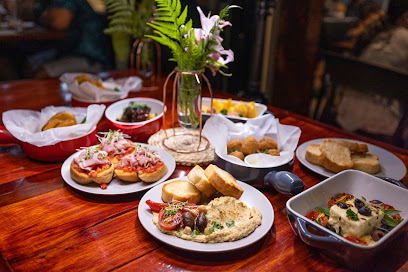
Giordano's Pizzeria // Samoa
Experience authentic Italian cuisine at Giordano's Pizzeria in Samoa - where every pizza tells a story of flavor.
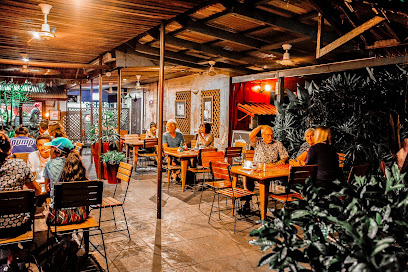
Phat Burger
Savor mouthwatering gourmet burgers at Phat Burger in Apia – where flavor meets Samoan hospitality!
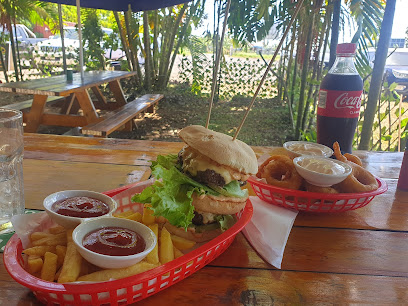
The Edge Marina, Samoa
Experience island vibes at The Edge Marina - your ultimate pub, café, and cocktail bar destination in Apia, Samoa.
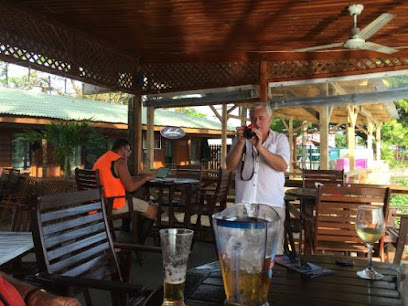
Scalini's Restaurant
Experience authentic Samoan flavors at Scalini's Restaurant in Apia – where every meal tells a story.
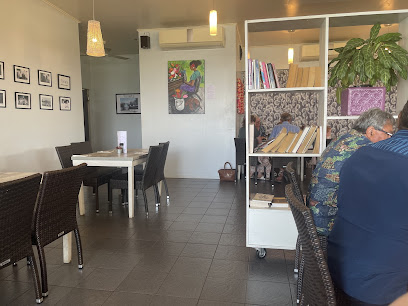
Tifaimoana Indian Restaurant
Experience authentic Indian flavors at Tifaimoana Indian Restaurant in Apia – where culinary traditions come alive.
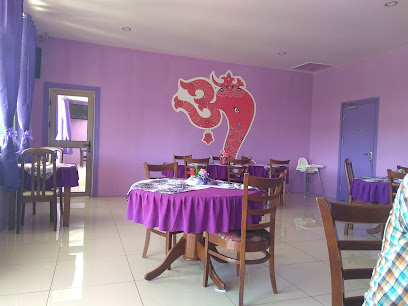
Pinati Restaurant
Experience the vibrant flavors of Samoa at Pinati Restaurant in Apia—where local ingredients meet exceptional hospitality.
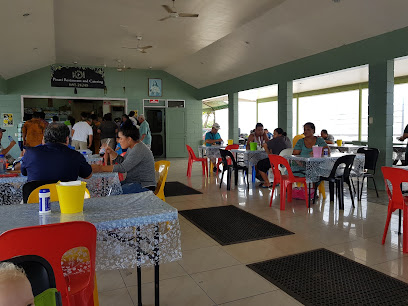
Sails Restaurant & Bar
Experience authentic Samoan flavors at Sails Restaurant & Bar in Apia—where every dish tells a story.
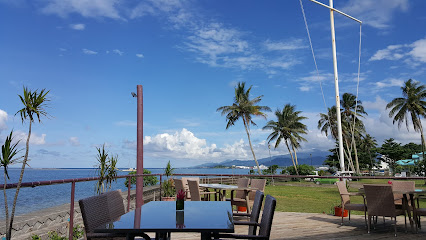
Kokobanana Bar & Grill
Discover authentic Samoan flavors at Kokobanana Bar & Grill in Apia – where every meal is a celebration of island culture.
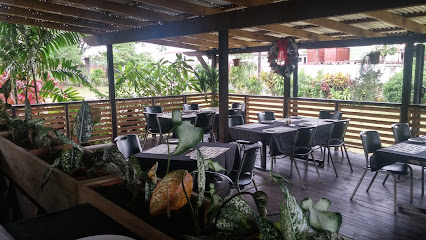
Georgies Pizza
Discover delicious pizzas at Georgies Pizza in Apia – where fresh ingredients meet Samoan hospitality.
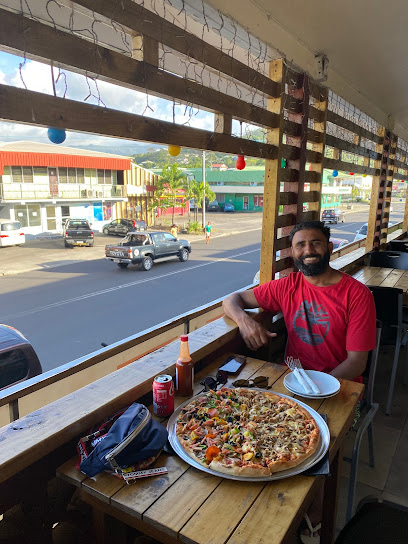
Bistro Tatau Restaurant
Experience the flavors of Samoa at Bistro Tatau, where traditional dishes meet contemporary flair in the heart of Apia.
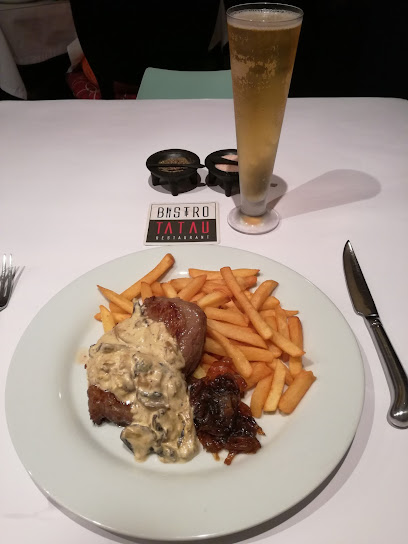
Amanaki Restaurant
Experience authentic Samoan flavors at Amanaki Restaurant in Apia – where local ingredients meet culinary creativity.
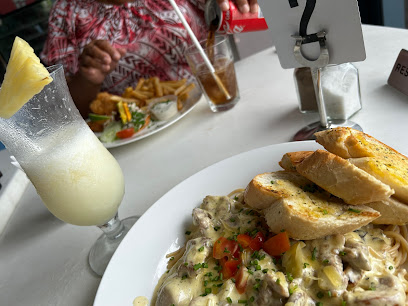
Island Grill - Steak & Seafood
Experience authentic Samoan flavors at Island Grill - where steak meets seafood in a vibrant setting.
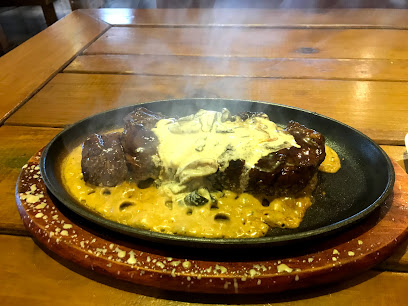
Seafood Gourmet
Experience the best seafood in Samoa at Seafood Gourmet, where fresh catches meet breathtaking views in Apia's beautiful wharf area.
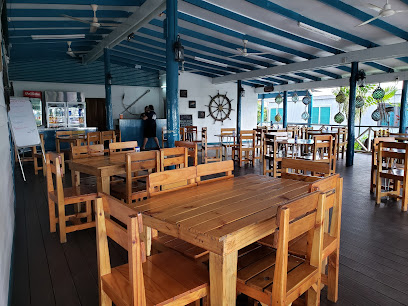
Roko's Restaurant
Experience authentic Samoan cuisine at Roko's Restaurant in Apia—where local flavors meet international delights.
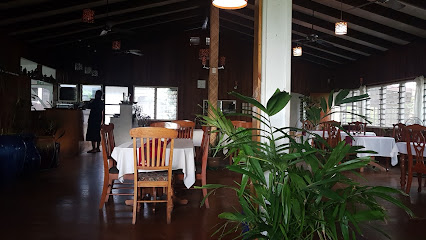
Markets, malls and hidden boutiques
Pacific Jewell Gift Shop & Garden Café
Explore unique handcrafted souvenirs and savor local flavors at the Pacific Jewell Gift Shop & Garden Café in Apia, Samoa.
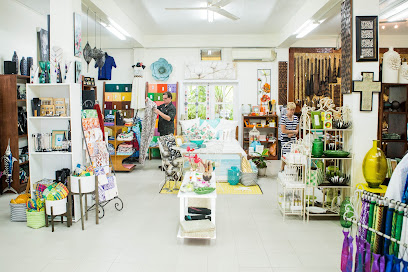
Fugalei Fresh Produce Market
Discover the vibrant flavors of Samoa at Fugalei Fresh Produce Market, a bustling hub of fresh produce and local delicacies in Apia.
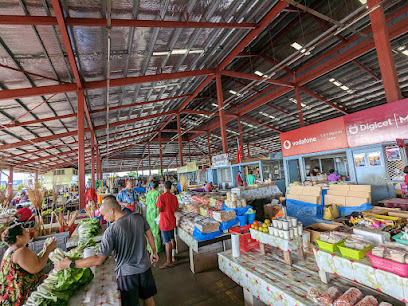
SSAB Megastore
Experience vibrant shopping at the SSAB Megastore in Apia, where local culture meets diverse retail offerings in a friendly atmosphere.
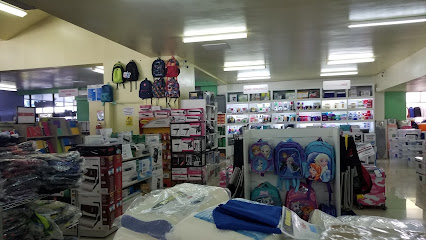
Eveni Carruthers
Discover the essence of Samoa at Eveni Carruthers, where unique gifts, local crafts, and stylish clothing await you in Apia.
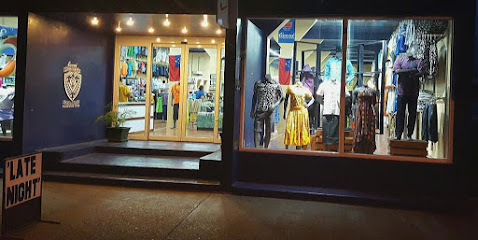
Farmer Joe's Supermarket
Discover the essence of Samoan cuisine at Farmer Joe's Supermarket, where fresh local produce meets international flavors in Apia.
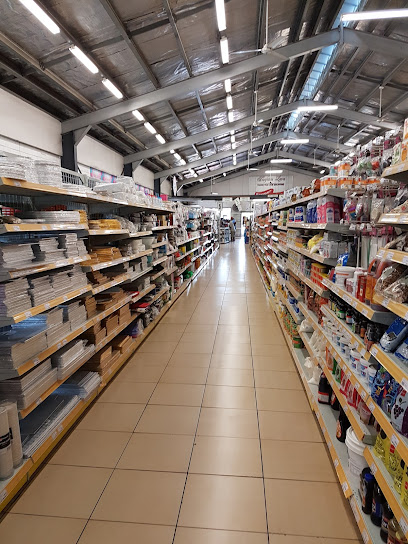
All Things Sweet Samoa
Discover the sweetest flavors of Samoa at All Things Sweet Samoa, a delightful cake shop in Apia offering cakes, cupcakes, and wedding pastries.
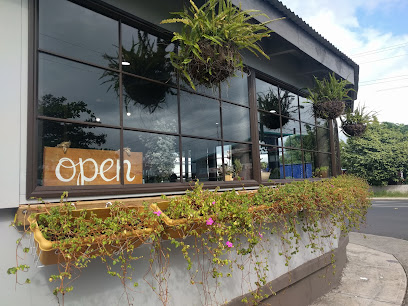
Sula's Bakery & Minimart
Discover the taste of Samoa at Sula's Bakery & Minimart, where every bite is a delicious journey through local flavors.
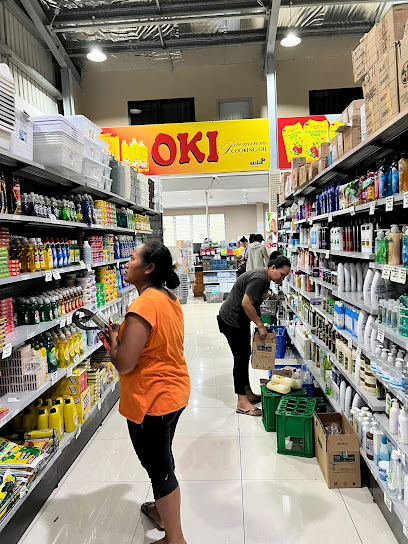
Janet's Samoa
Discover unique handcrafted gifts and immerse yourself in the rich cultural heritage of Samoa at Janet's Samoa, the heart of Apia's artistic scene.
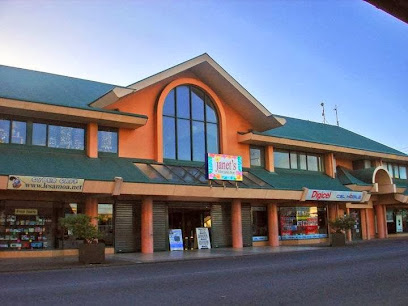
Tanoa Samoa
Discover the vibrant world of Samoan fashion at Tanoa Samoa, where tradition meets contemporary style in the heart of Apia.
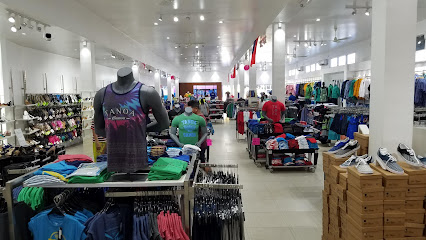
Mailelani Samoa Body Care
Experience the beauty of Samoa with authentic health and beauty products from Mailelani Samoa Body Care in Apia.
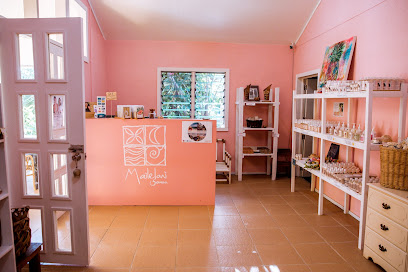
Linettacollections Samoa
Explore Linettacollections Samoa for unique home goods that embody the island's culture and craftsmanship, perfect for souvenirs and gifts.

Le Well
Discover unique home goods and Samoan craftsmanship at Le Well in Apia, a must-visit store for every traveler seeking local treasures.
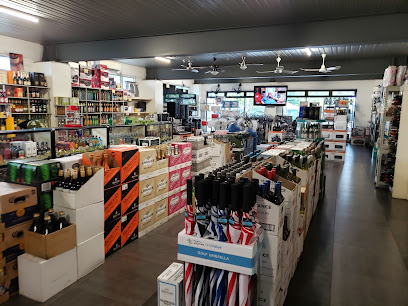
Horizon Surf Samoa
Discover the ultimate surf culture at Horizon Surf Samoa, where you'll find everything from gear to local designs in the heart of Apia.
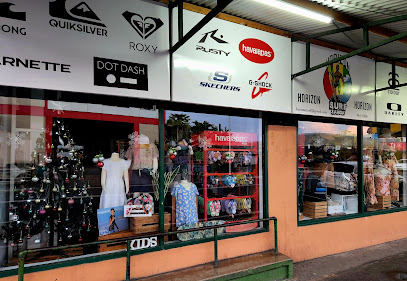
Plantation House
Explore the vibrant fashion of Samoa at Plantation House, where unique styles meet local craftsmanship in a warm and inviting atmosphere.
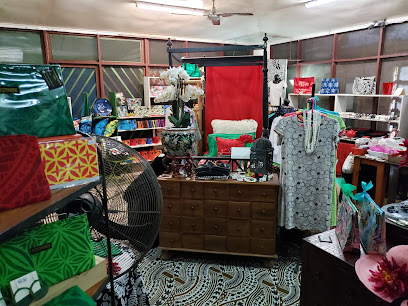
Island Rock Co.
Explore Island Rock Co. in Apia for the latest electronics and unique tech souvenirs to enhance your travel experience in Samoa.
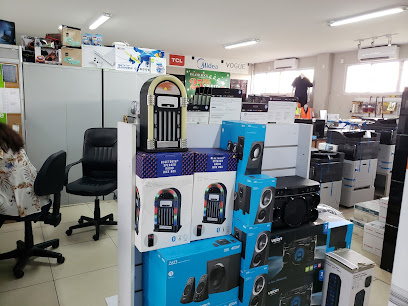
Essential bars & hidden hideouts
Paddles Restaurant
Discover the best of Samoan cuisine at Paddles Restaurant, where local flavors meet a stunning atmosphere in the heart of Apia.
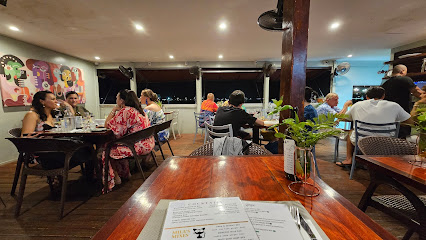
The Edge Marina, Samoa
Experience the vibrant atmosphere of The Edge Marina in Samoa, a perfect blend of dining, cocktails, and stunning coastal views.
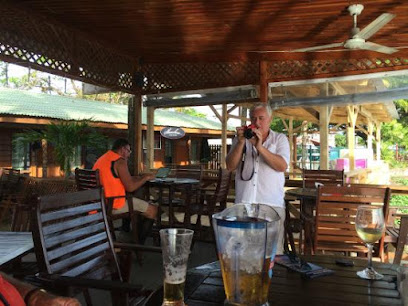
Sails Restaurant & Bar
Discover Sails Restaurant & Bar in Apia, where local flavors meet stunning ocean views for a truly memorable dining experience.
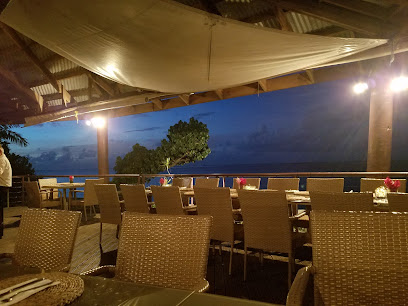
Kokobanana Bar & Grill
Discover the vibrant flavors of Samoa at Kokobanana Bar & Grill, where authentic cuisine meets a lively atmosphere in the heart of Apia.
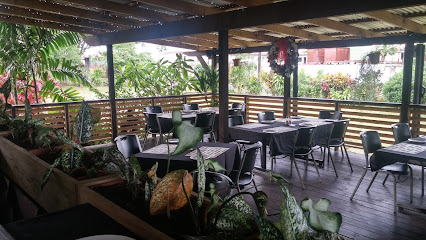
Bistro Tatau Restaurant
Discover the essence of Samoan cuisine at Bistro Tatau, where local flavors meet international flair in a stunning setting.
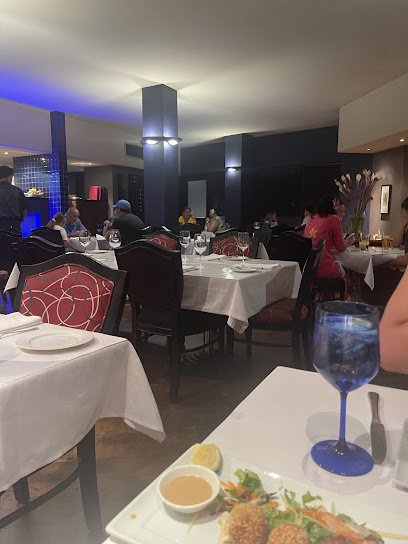
Amanaki Restaurant
Savor the authentic flavors of Samoa at Amanaki Restaurant, offering a delightful culinary journey in the heart of Apia.
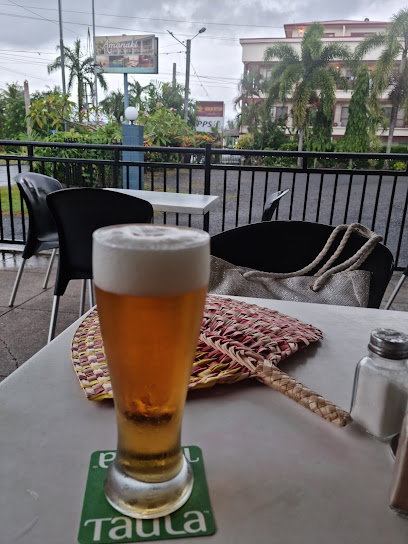
Island Grill - Steak & Seafood
Experience the best of Pacific cuisine with fresh seafood and succulent steaks at Island Grill in Apia.
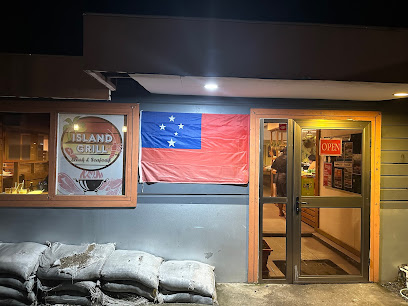
Roko's Restaurant
Savor the vibrant flavors of Samoa at Roko's Restaurant, where exceptional cuisine meets a welcoming atmosphere in Apia.
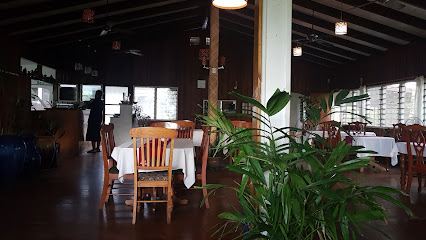
Taumeasina Restaurant & Bar
Experience the exquisite flavors of Samoa at Taumeasina Restaurant & Bar, where culinary traditions meet stunning ocean views in Apia.
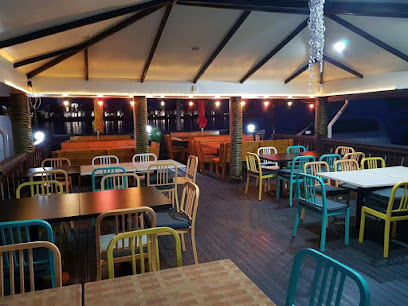
Italiano's Pizza
Experience the authentic taste of Italy in Apia at Italiano's Pizza, where fresh ingredients and local flavors create unforgettable dishes.
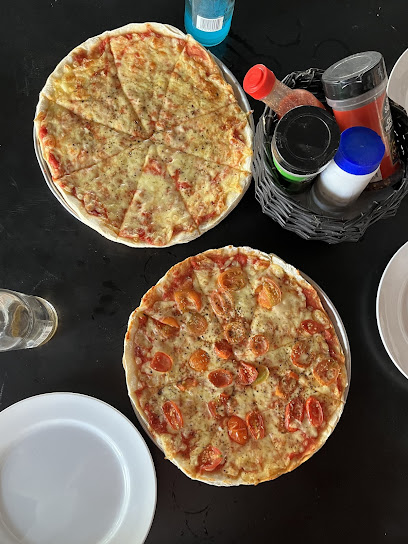
Bella's Kitchen
Experience the authentic tastes of Samoa at Bella's Kitchen in Apia, where local ingredients meet traditional recipes in a vibrant setting.
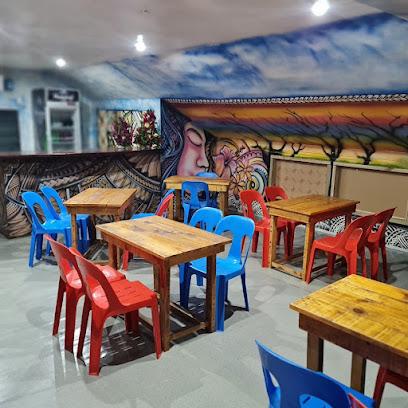
Cocktails On the Rocks
Discover the vibrant atmosphere and refreshing cocktails at Cocktails On the Rocks, the perfect bar to unwind during your Samoan adventure.
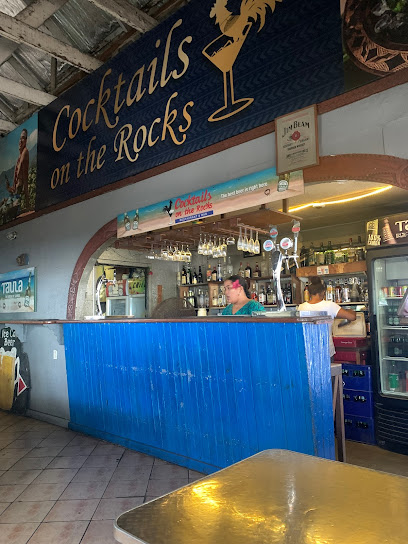
Apia Yacht Club Bar and Restaurant
Experience the perfect blend of stunning sea views and delicious local cuisine at Apia Yacht Club Bar and Restaurant in Samoa.
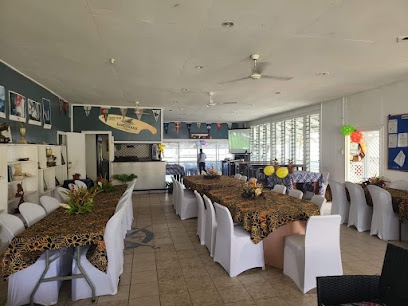
JP Bar
Discover the vibrant nightlife at JP Bar in Apia, where local flavors and tropical drinks come together in a lively atmosphere.
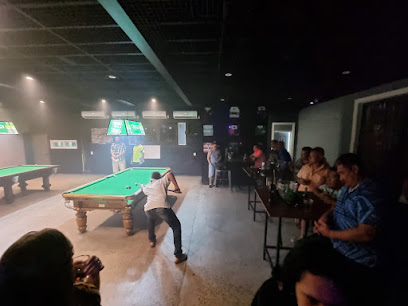
Local Phrases
-
- HelloTalofa
[Tah-loh-fah] - GoodbyeFa
[Fah] - YesIoe
[Ee-oh-eh] - NoLeai
[Leh-eye] - Please/You're welcomeFa'amalie
[Fah-ah-mah-lee-eh] - Thank youFa'afetai
[Fah-ah-feh-tah-ee] - Excuse me/SorryTulou
[Too-loh-oo] - How are you?O ai oe?
[Oh-eye-oh-eh] - Fine. And you?Lelei. Pe o oe?
[Leh-leh-ee. Peh-oh-oh-eh] - Do you speak English?O lea e te le fa'ailoa i le fa'apalagi?
[Oh-leh-ah-eh-teh-leh-fah-ah-ee-loh-ah-ee-leh-fah-ah-pah-lah-gee] - I don't understandE le mafai ona ou te le malamalama
[Eh-leh-mah-fah-ee-oh-nah-oh-oo-teh-leh-mah-lah-mah-lah-mah]
- HelloTalofa
-
- I'd like to see the menu, pleaseOu te fia va'ai le mea'ai, fa'amalie
[Oh-oo-teh-fee-ah-vah-ah-ee-leh-meh-ah-eye, fah-ah-mah-lee-eh] - I don't eat meatE le auai i le kuka pisupo
[Eh-leh-ah-oo-eye-ee-leh-koo-kah-pee-soo-poh] - Cheers!Manuia!
[Mah-noo-ee-ah] - I would like to pay, pleaseOu te fia totogi, fa'amalie
[Oh-oo-teh-fee-ah-toh-toh-gee, fah-ah-mah-lee-eh]
- I'd like to see the menu, pleaseOu te fia va'ai le mea'ai, fa'amalie
-
- Help!Tulou!
[Too-loh-oo] - Go away!Alu i tua!
[Ah-loo-ee-too-ah] - Call the Police!Telefono i leoleo!
[Teh-leh-foh-noh-ee-leh-oh-leh-oh] - Call a doctor!Telefono i le foma'i!
[Teh-leh-foh-noh-ee-leh-foh-mah-ee] - I'm lostUa ou iloa
[Oo-ah-oh-oo-ee-loh-ah] - I'm illUa ou mate
[Oo-ah-oh-oo-mah-teh]
- Help!Tulou!
-
- I'd like to buy...Ou te fia faatau...
[Oh-oo-teh-fee-ah-fah-ah-tah-oo] - I'm just lookingUa ou va'ai
[Oo-ah-oh-oo-vah-ah-ee] - How much is it?O lea le totogi?
[Oh-leh-ah-leh-toh-toh-gee] - That's too expensiveE lelei le totogi
[Eh-leh-leh-ee-leh-toh-toh-gee] - Can you lower the price?O le mafai ona ou te fa'aleleia le totogi?
[Oh-leh-mah-fah-ee-oh-nah-oh-oo-teh-fah-ah-leh-leh-ee-ah-leh-toh-toh-gee]
- I'd like to buy...Ou te fia faatau...
-
- What time is it?O le a le taimi?
[Oh-leh-ah-leh-tah-ee-mee] - It's one o'clockE tasi itula
[Eh-tah-see-ee-too-lah] - Half past (10)Itula i le sefulu
[Ee-too-lah-ee-leh-seh-foo-loo] - MorningVaveao
[Vah-veh-ah-oh] - AfternoonAoauli
[Ah-oh-ah-oo-lee] - EveningAfiafi
[Ah-fee-ah-fee] - YesterdayAso nei
[Ah-soh-nay-ee] - TodayAso lenei
[Ah-soh-leh-neh-ee] - TomorrowAso taeao
[Ah-soh-tah-eh-ah-oh] - 1Tasi
[Tah-see] - 2Lua
[Loo-ah] - 3Tolu
[Toh-loo] - 4Fa
[Fah] - 5Lima
[Lee-mah] - 6Ono
[Oh-noh] - 7Fitu
[Fee-too] - 8Valu
[Vah-loo] - 9Iva
[Ee-vah] - 10Sefulu
[Seh-foo-loo]
- What time is it?O le a le taimi?
-
- Where's a/the...?O fea le...?
[Oh-feh-ah-leh] - What's the address?O le a le tuatusi?
[Oh-leh-ah-leh-too-ah-too-see] - Can you show me (on the map)?O le mafai ona ou fa'ailoa i ai (i le mapa)?
[Oh-leh-mah-fah-ee-oh-nah-oh-oo-fah-ah-ee-loh-ah-ee-ah-ee-ee-leh-mah-pah] - When's the next (bus)?Aso e tali atu le...
[Ah-soh-eh-tah-lee-ah-too-leh] - A ticket (to ....)Tiketi (i le ....)
[Tee-keh-tee (ee-leh)]
- Where's a/the...?O fea le...?
History of Apia
-
Apia, the capital city of Samoa, has a rich Polynesian heritage that dates back thousands of years. The first settlers arrived in the Samoan archipelago around 1000 BCE, developing a sophisticated culture centered around communal living, fishing, and agriculture. The oral traditions, music, dance, and tattooing practices that originated during this period still thrive in Apia today.
-
The 19th century saw significant changes in Apia with the arrival of European explorers and missionaries. John Williams, a missionary from the London Missionary Society, arrived in 1830, beginning a wave of Christian influence that transformed Samoan society. Churches were built, and many Samoans converted to Christianity, which remains a dominant religion in Apia.
-
In the late 19th century, Apia became the focal point of international rivalry. The Tripartite Treaty of 1899 saw Samoa divided between Germany and the United States, with Apia becoming the capital of German Samoa. This period was marked by infrastructural development but also by political unrest and resistance from the Samoan people.
-
After World War I, control of Samoa, including Apia, was transferred to New Zealand under a League of Nations mandate. The 1920s and 1930s saw significant resistance to colonial rule, embodied in the Mau Movement. The movement, which advocated for Samoan independence and self-governance, gained widespread support in Apia. The tragic Black Saturday incident in 1929, where New Zealand police opened fire on peaceful protestors, left a lasting impact on the city.
-
Samoa, with Apia as its capital, achieved independence from New Zealand on January 1, 1962, becoming the first Pacific island nation to do so. Since independence, Apia has grown into a bustling urban center, blending modern amenities with traditional Samoan culture. Landmarks such as the Robert Louis Stevenson Museum and the vibrant Maketi Fou market highlight the city's unique cultural and historical tapestry.
Apia Essentials
-
Apia, the capital city of Samoa, is most commonly accessed via Faleolo International Airport (APW), located about 40 minutes from the city center. Several international airlines operate flights to Apia from major hubs like Auckland, Sydney, and Honolulu. There are also regional flights from other Pacific islands. Upon arrival, you can take a taxi, shuttle, or rental car to reach Apia.
-
Within Apia, taxis are the most convenient mode of transportation and are relatively affordable. Make sure to agree on the fare before starting your journey. Public buses are available and offer a unique, colorful experience, but schedules can be irregular. Rental cars are also an option for those looking to explore more independently. Traffic drives on the left side of the road.
-
The official currency in Samoa is the Samoan Tala (WST). Credit cards are accepted in most hotels, restaurants, and larger shops, but it's advisable to carry cash for smaller establishments and markets. ATMs are readily available in Apia, and currency exchange services can be found at banks and major hotels.
-
Apia is generally a safe destination for tourists. However, it is advisable to take standard precautions. Avoid walking alone at night in poorly lit areas and keep an eye on your belongings in crowded places. While there are no specific high-crime areas targeting tourists, always stay vigilant and aware of your surroundings.
-
In case of emergency, dial 911 for immediate assistance. The main police station and medical facilities, including the Tupua Tamasese Meaole Hospital, are located in Apia. It is recommended to have travel insurance that covers medical emergencies. Pharmacies are available in the city for minor health issues.
-
Fashion: Do dress modestly, particularly outside of resort areas and when visiting villages. Avoid wearing overly revealing clothing. Religion: Do respect local customs and traditions. Always dress appropriately when visiting churches and remove your shoes before entering. Public Transport: Do be respectful and patient, as buses may not run on strict schedules. Don't expect air conditioning on local buses. Greetings: Do greet people with a warm smile and a handshake. Use 'Talofa' for hello and 'Fa'afetai' for thank you. Eating & Drinking: Do try local foods and accept food offerings graciously. Don't refuse hospitality, as it is considered impolite.
-
To experience Apia like a local, visit the Maketi Fou (New Market) where you can buy fresh produce, crafts, and Samoan delicacies. Engage with locals, who are often friendly and willing to share stories about their culture. Don't miss the opportunity to attend a fiafia night to enjoy traditional Samoan music, dance, and food. For a unique experience, visit the Robert Louis Stevenson Museum, the former home of the famous author.
Trending Landmark in Apia
-
To-Sua Ocean Trench
-
Tanoa Tusitala Hotel
-
Piula Cave Pool
-
Sheraton Samoa Aggie Grey's Hotel & Bungalows
-
Palolo Deep Marine Reserve
-
Samoa Cultural Village
-
Robert Louis Stevenson Museum
-
Papaseea Sliding Rocks
-
Immaculate Conception Cathedral
-
Lava Hotel Apia
-
Togitogiga Waterfall
-
Papapapaitai Falls
-
O Le Pupu-Pue National Park
-
Falefa Falls
-
Apia Samoa Temple
Nearby Cities to Apia
-
Things To Do in Mulifanua
-
Things To Do in Lalomanu
-
Things To Do in Salelologa
-
Things To Do in Savai'i
-
Things To Do in Fagamalo
-
Things To Do in Manase
-
Things To Do in Asau
-
Things To Do in Falealupo
-
Things To Do in Leone
-
Things To Do in Pago Pago
-
Things To Do in Tafuna
-
Things To Do in Fagatogo
-
Things To Do in Aua
-
Things To Do in Ha'ano
-
Things To Do in Pangai









